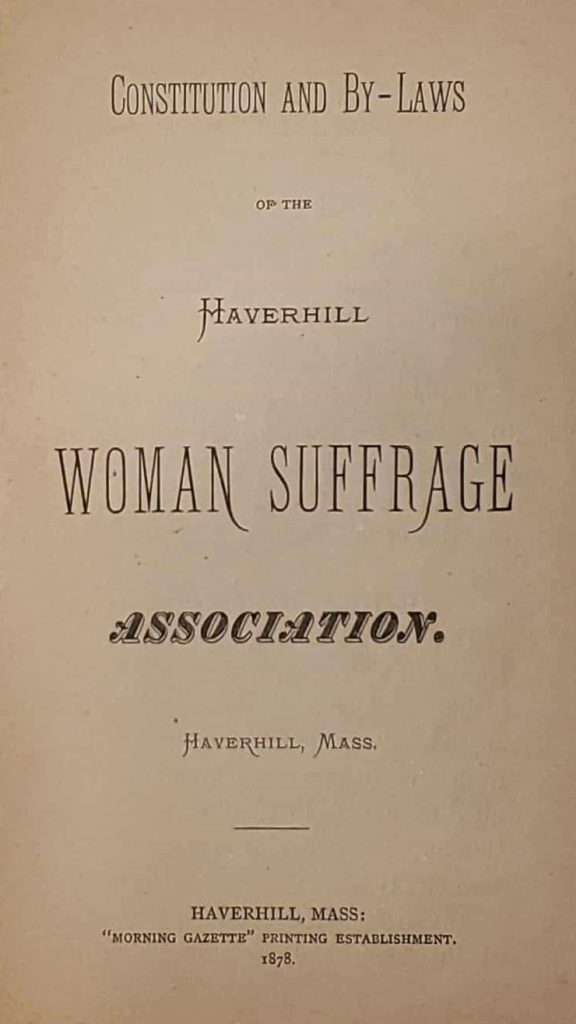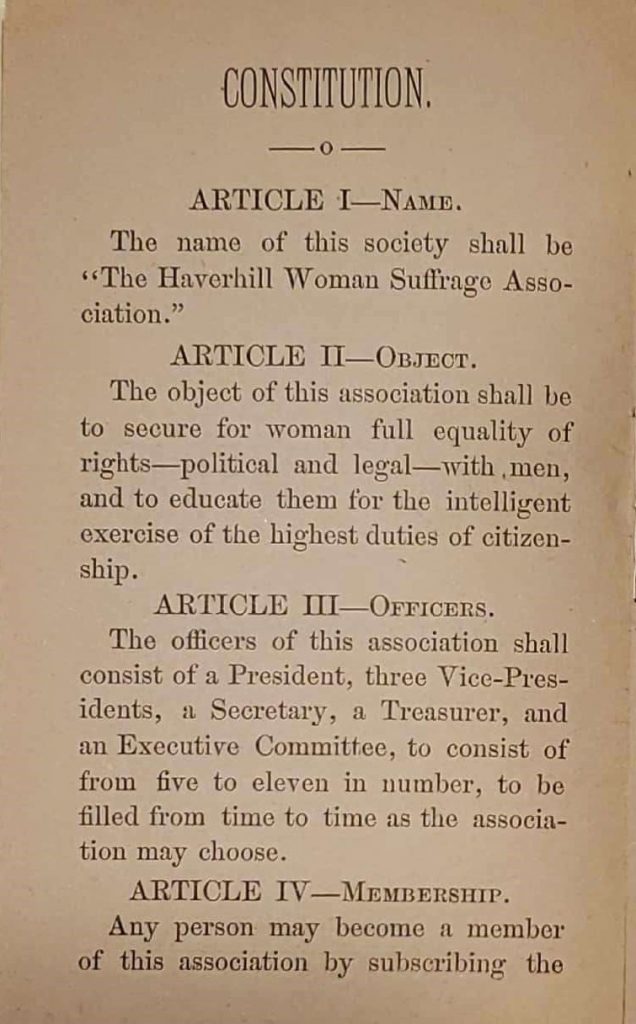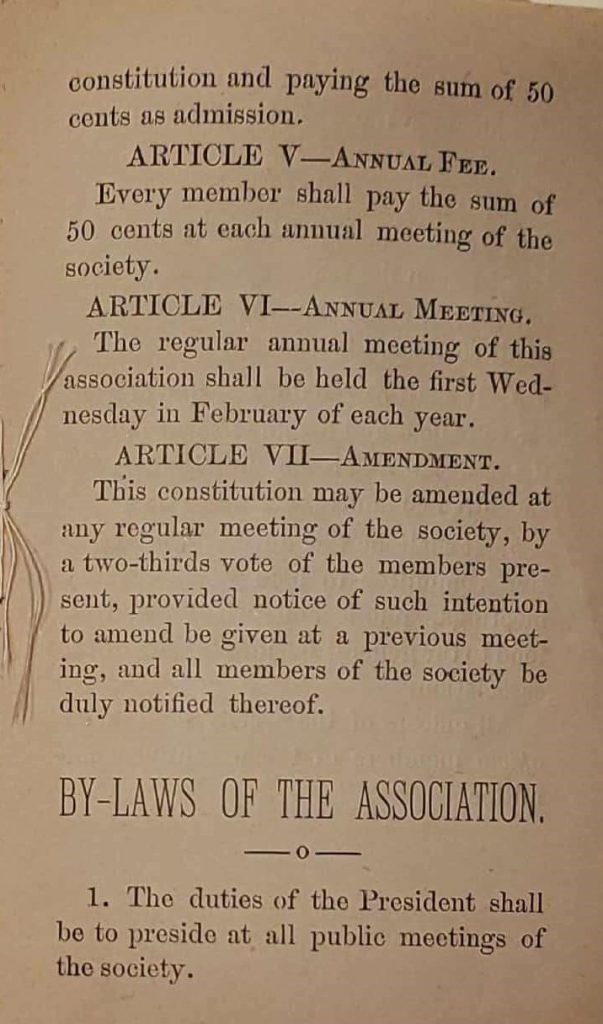Not until the formation of the Haverhill Equal Suffrage League in May 1914 did the city have a strong impact in the fight for women’s suffrage. Formed with Mary Brinton Briggs as president, and other prominent well-educated women of the city as its members, these women wrote the constitution and by-laws. They also chose to include a male advocacy board to assure male support for women’s suffrage. The league can thank its success due to its well-organized members and strong connection to the Massachusetts Suffrage Association and the National American Woman Suffrage Association.
Active in many social issues, the Haverhill Equal Suffrage League raised money for charities, aided the Red Cross, and wrote a letter to congress endorsing the Palmer-Owen Child Labor Bill. They also distributed around 25,000 pieces of suffrage literature throughout the city. The league was very active with neighboring sister-groups, spoke before many local men’s organizations, and held debates before local men’s Sunday School Classes.
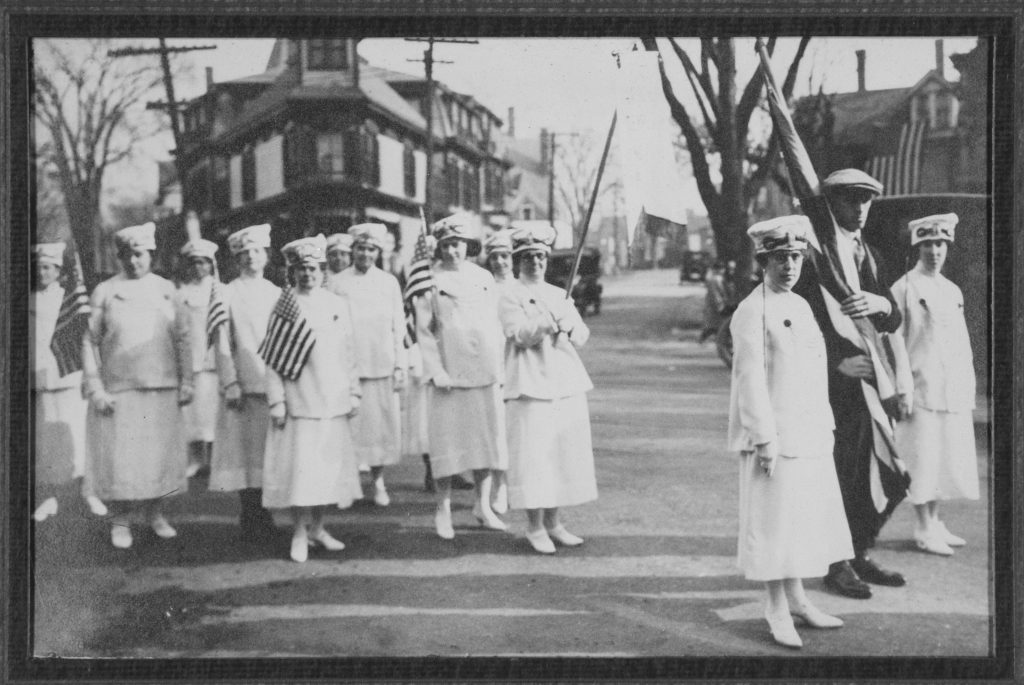
With the importance of publicity in mind, the group organized showings of several suffrage films, including the most popular suffragette film at the time, “Your Girl and Mine,” shown at the Orpheum Theater.
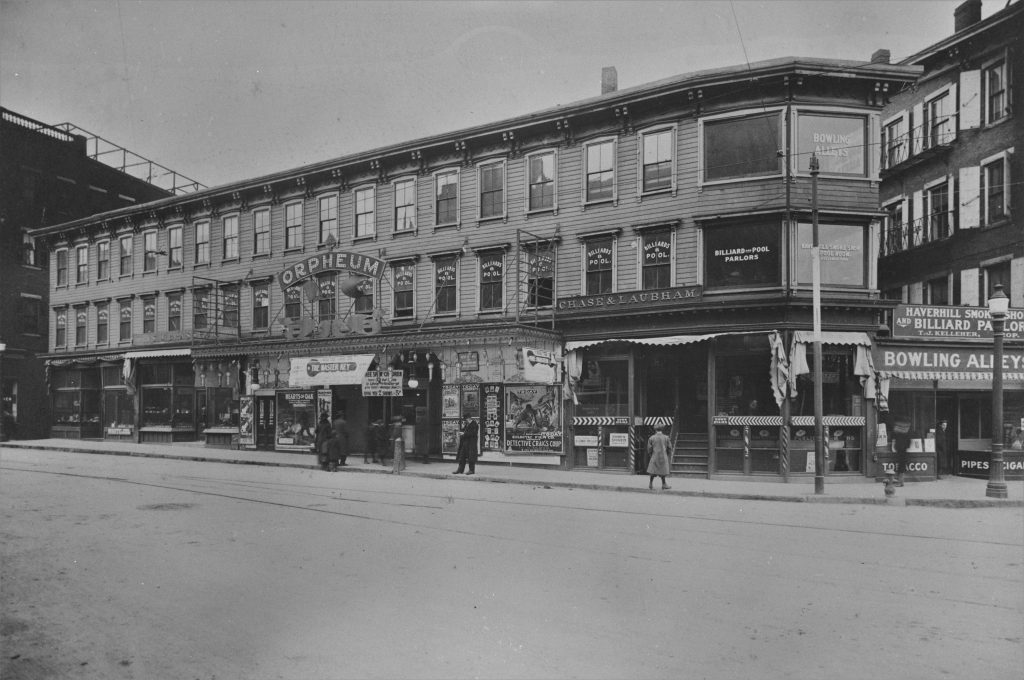
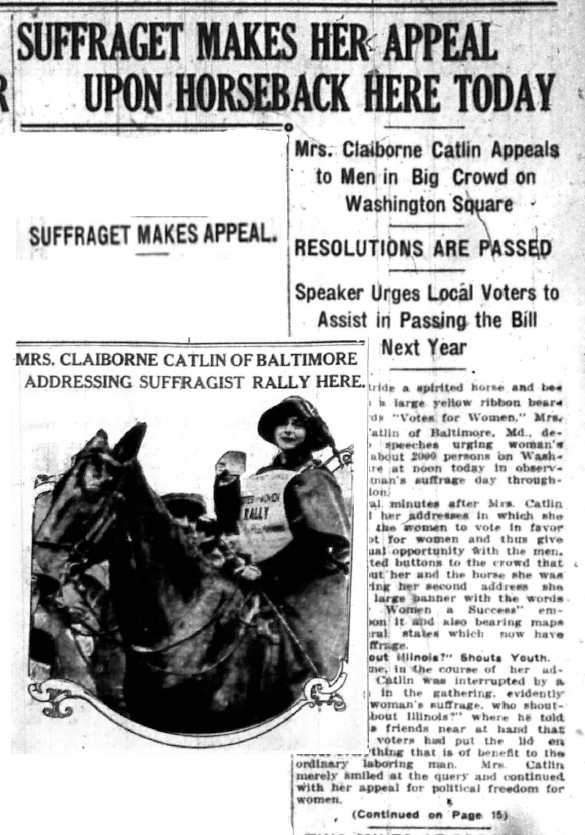
“Riding astride a spirited horse and bedecked with a large yellow ribbon bearing the words “Votes for Women,” Mrs. Claiborne Catlin of Baltimore, MD., delivered two speeches urging woman’s suffrage to about 2,000 persons on Washington Square at noon today in observance of woman’s suffrage day throughout the nation.”…

“Mrs. Catlin was accompanied to the square by a large delegation of members of the Haverhill branch of the Massachusetts Woman’s Suffrage association, several of whom distributed literature showing the claims set forth and the reasons why woman’s suffrage should be granted in every state of the union.
W.P. Warner of Plaistow, NH, who has been prominent in the Progressive party movement in that section of the Granite state, at the close of Mrs. Catlin’s first speech, read a set of resolutions making an appeal to congress to amend the United States constitution and thus permit women the right to vote. The resolutions will be sent to congress with thousands of others that will be passed in many cities and towns throughout the country today.
In the course of her address Mrs. Catlin appealed directly to the men in the gathering to give the woman a chance. She said that there are 8,000,000 women working in industries in the United States at the present time, that women possess valuable property, have children and have as much at stake as the men.
Mrs. Catlin said that it was the desire of the women to help the men, that being the essential reasons for the woman’s suffrage movement. She argued that some men know things that women do not: that women also are conversant with certain conditions that men are not aware of: but with the en and women joining in the affairs of the government there would be a vast change for the better.
Mrs. Catlin went on to say that human life is the cheapest thing in the country today. She said that the woman’s suffrage bill is coming up in Massachusetts again next year, and she made a stirring appeal to the men to see that is is passed and becomes a law.
‘If you place a woman in a dirty room with a broom,’ she said, ‘she will learn to use it if she does not already know how to do so.’ No nation can reach its highest development and success with men and women arrayed in opposition to each other.”
She called attention to the fact that there are now 10 suffrage states in the union, and , speaking especially in the western states, where it prevails, said that then men there felt they cannot get along without the aid of women in conducting the affairs of the government.
Mrs Catlin left for Boston this afternoon, where she is to take part in a big parade and mass meeting in behalf of woman’s suffrage.
Excerpt from article in the Haverhill Evening Gazette May 2, 1914 pages 1 and 15.
